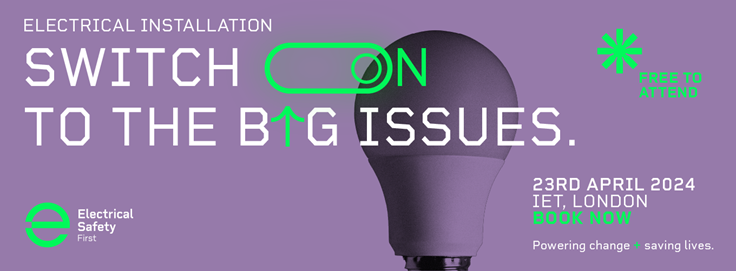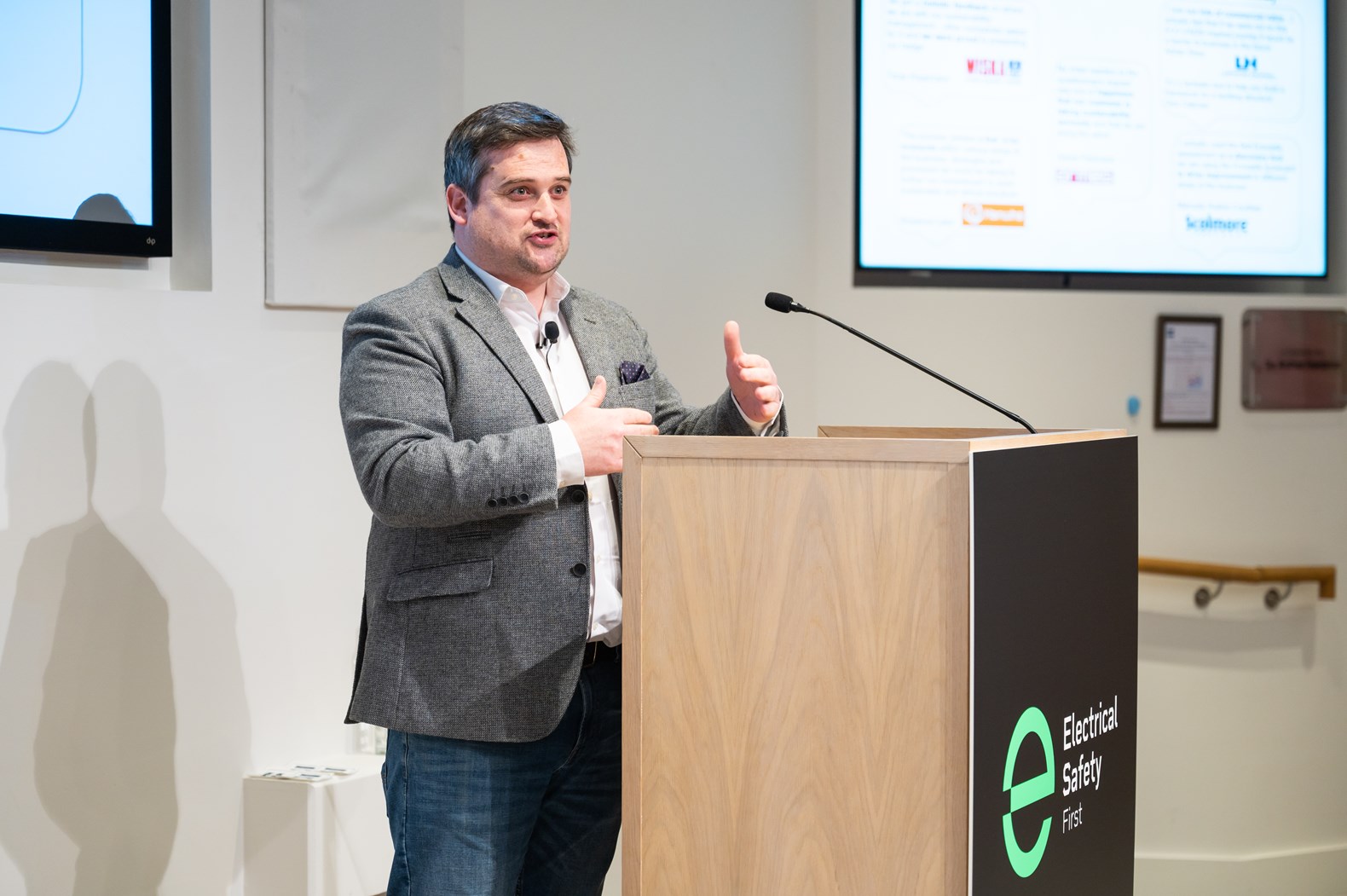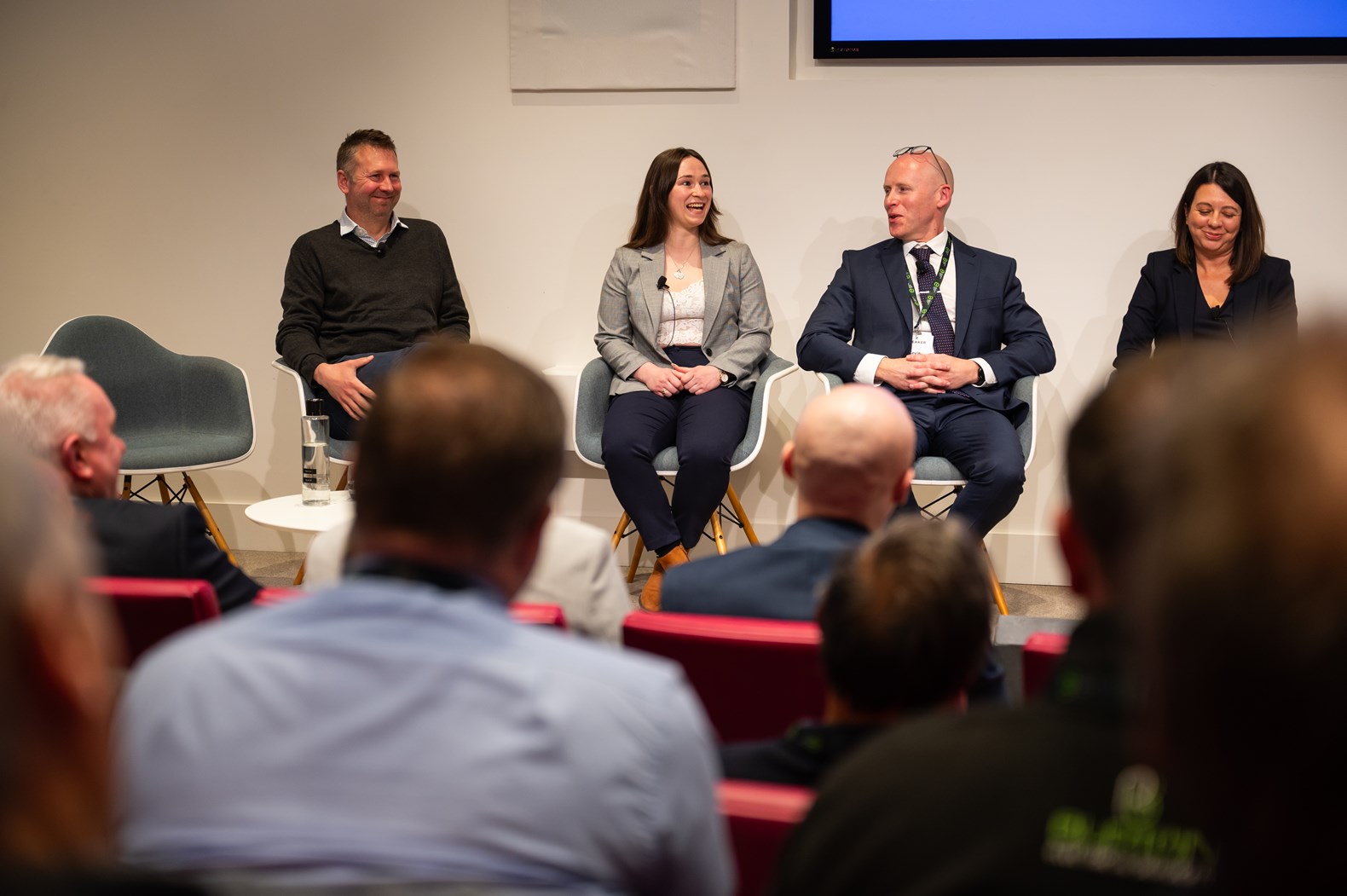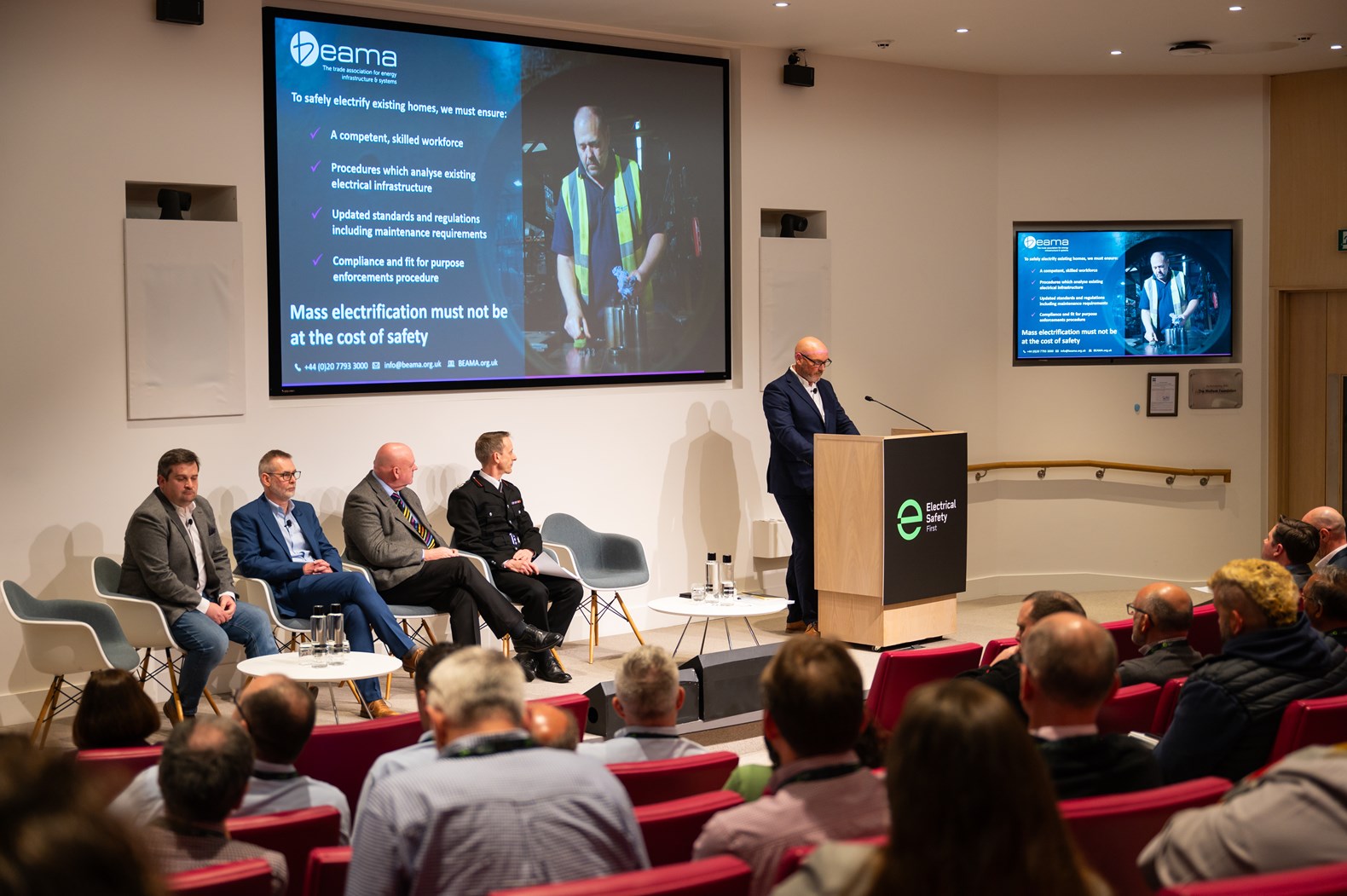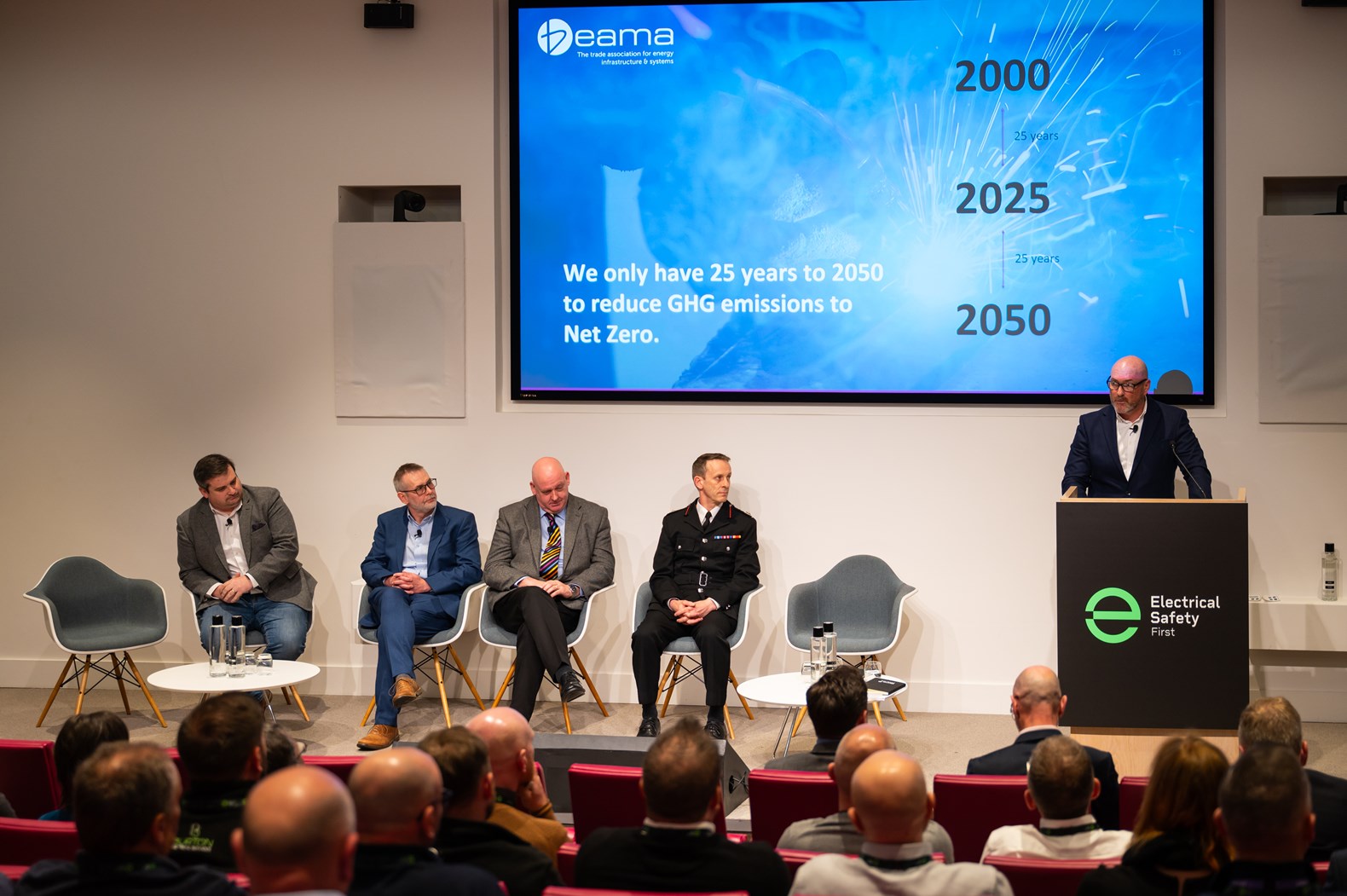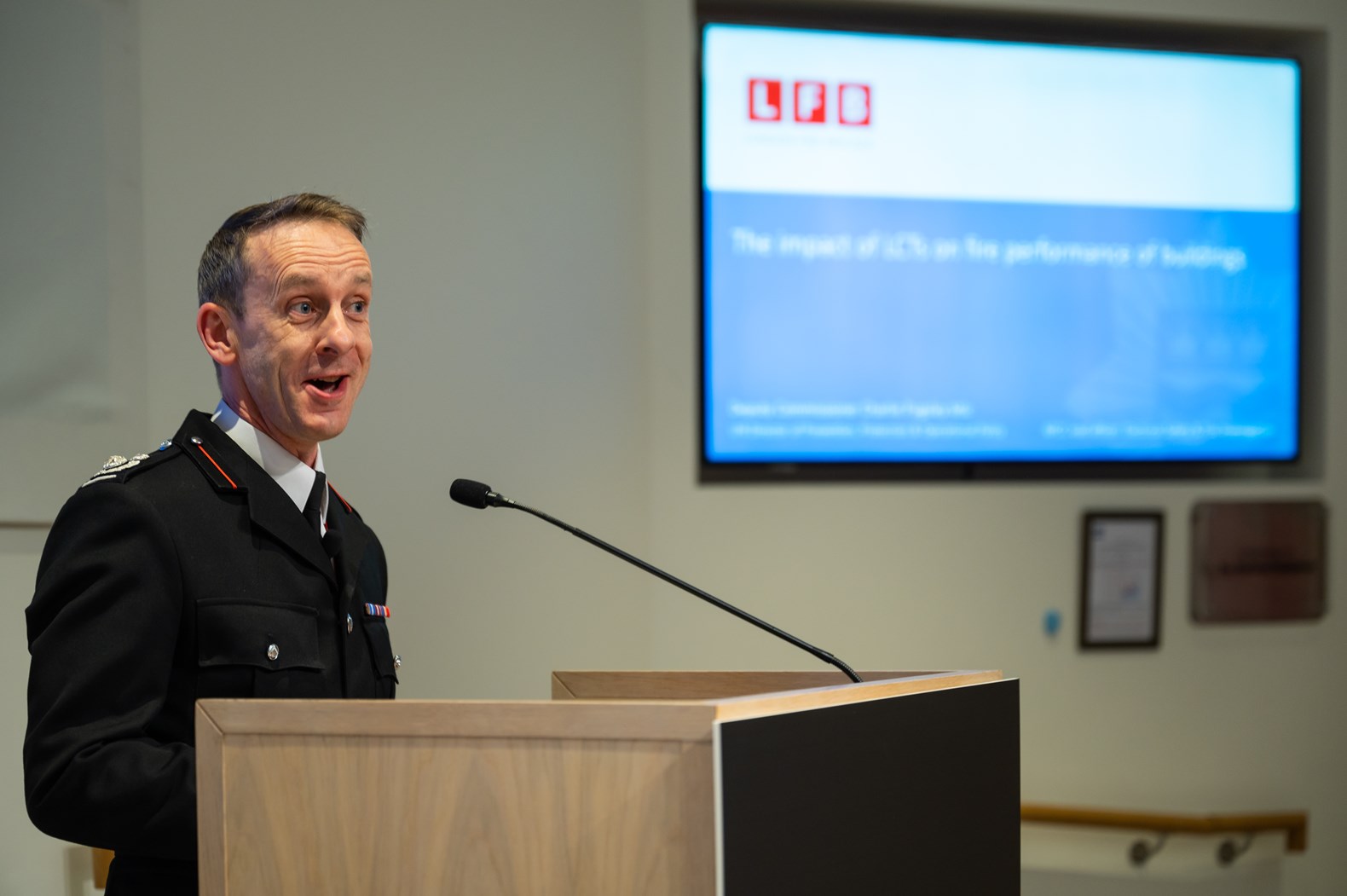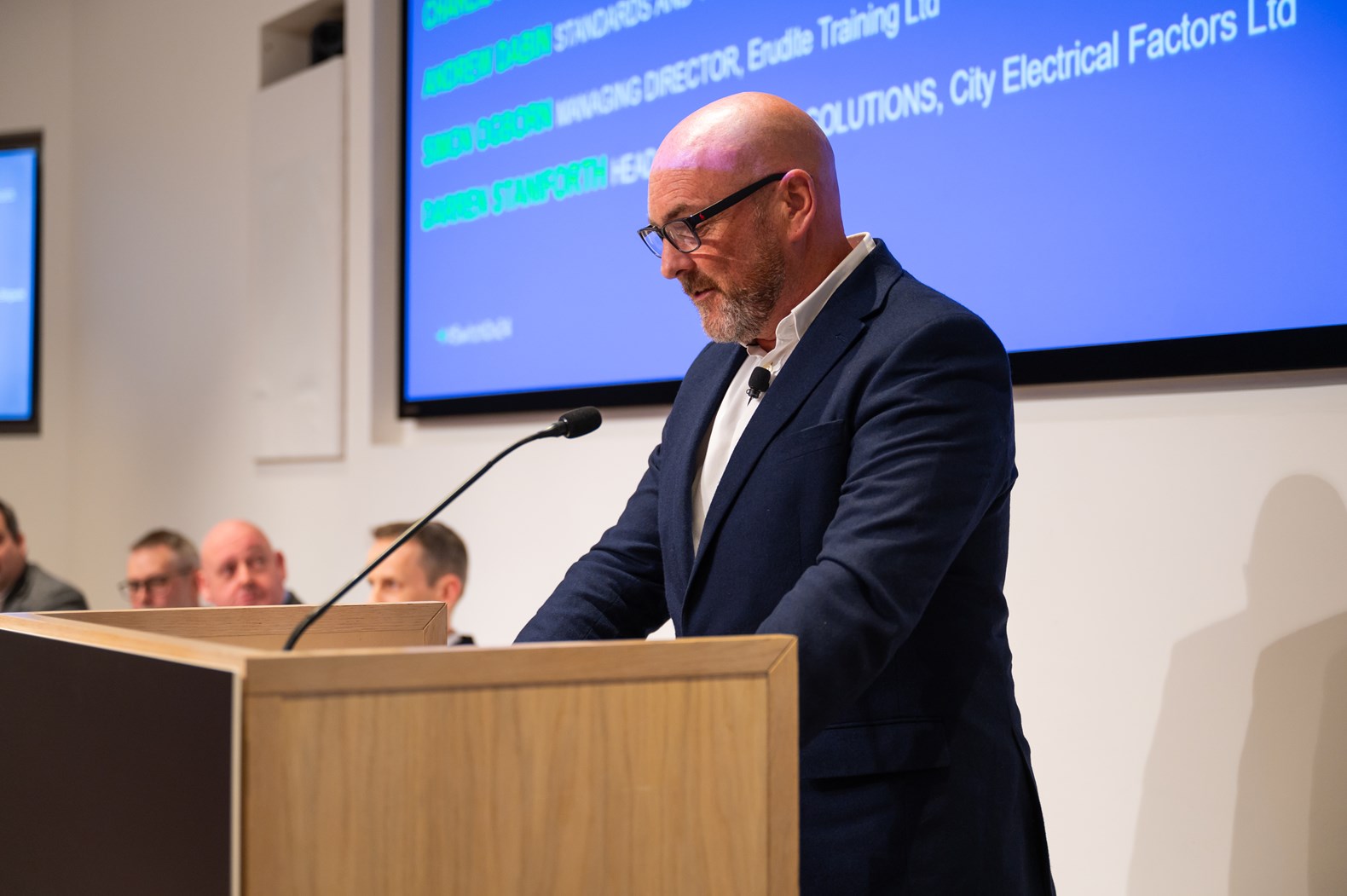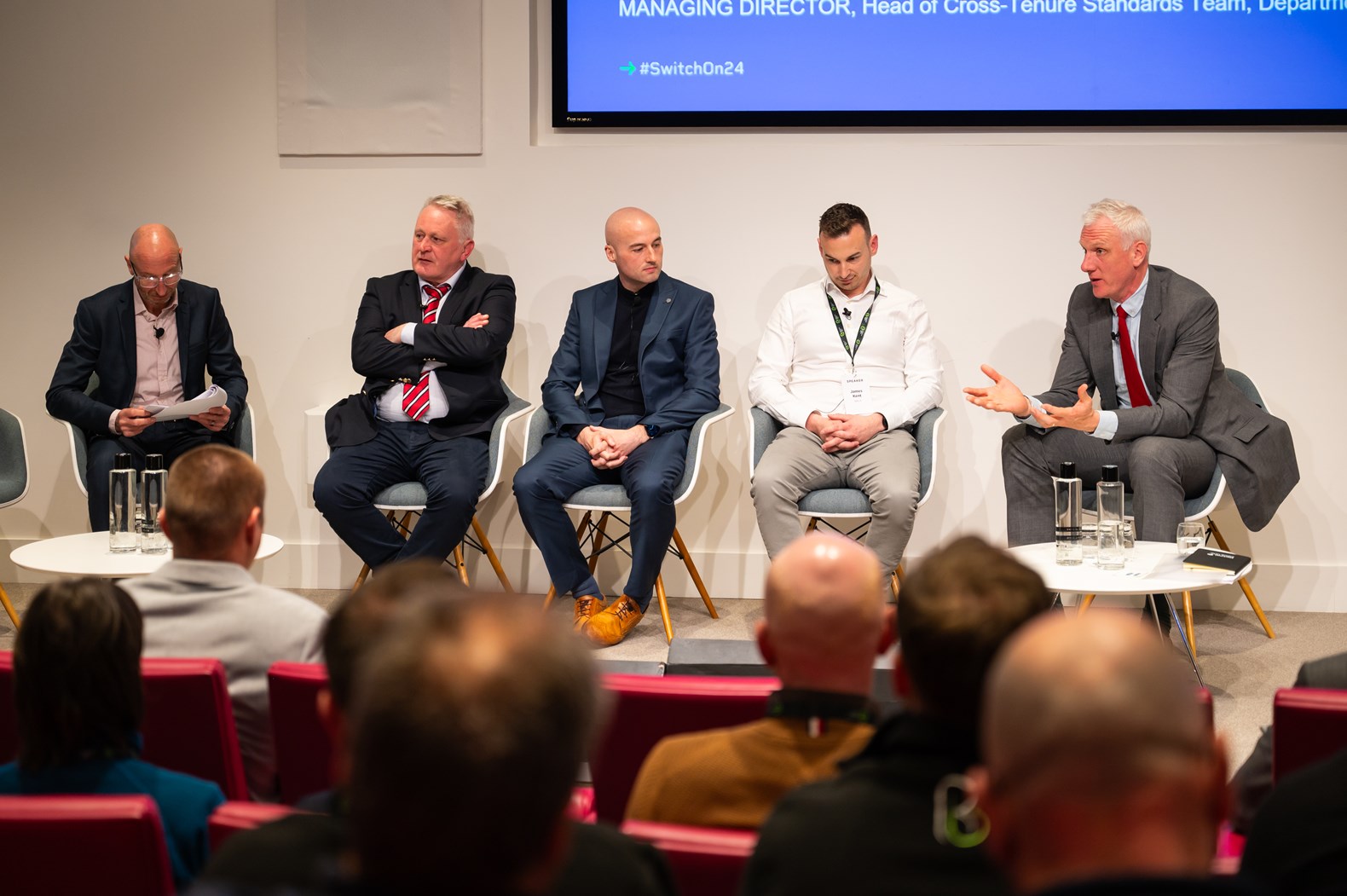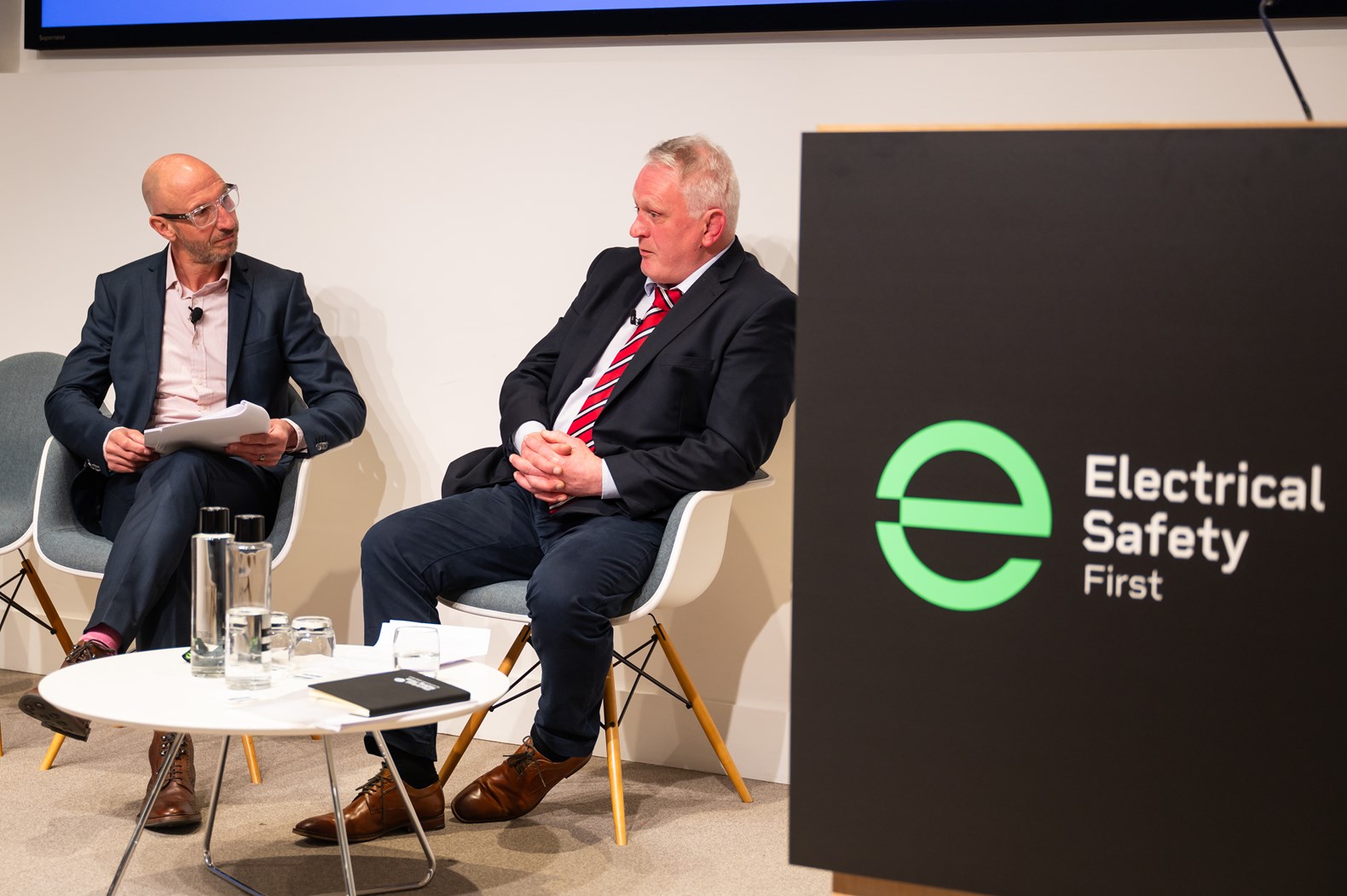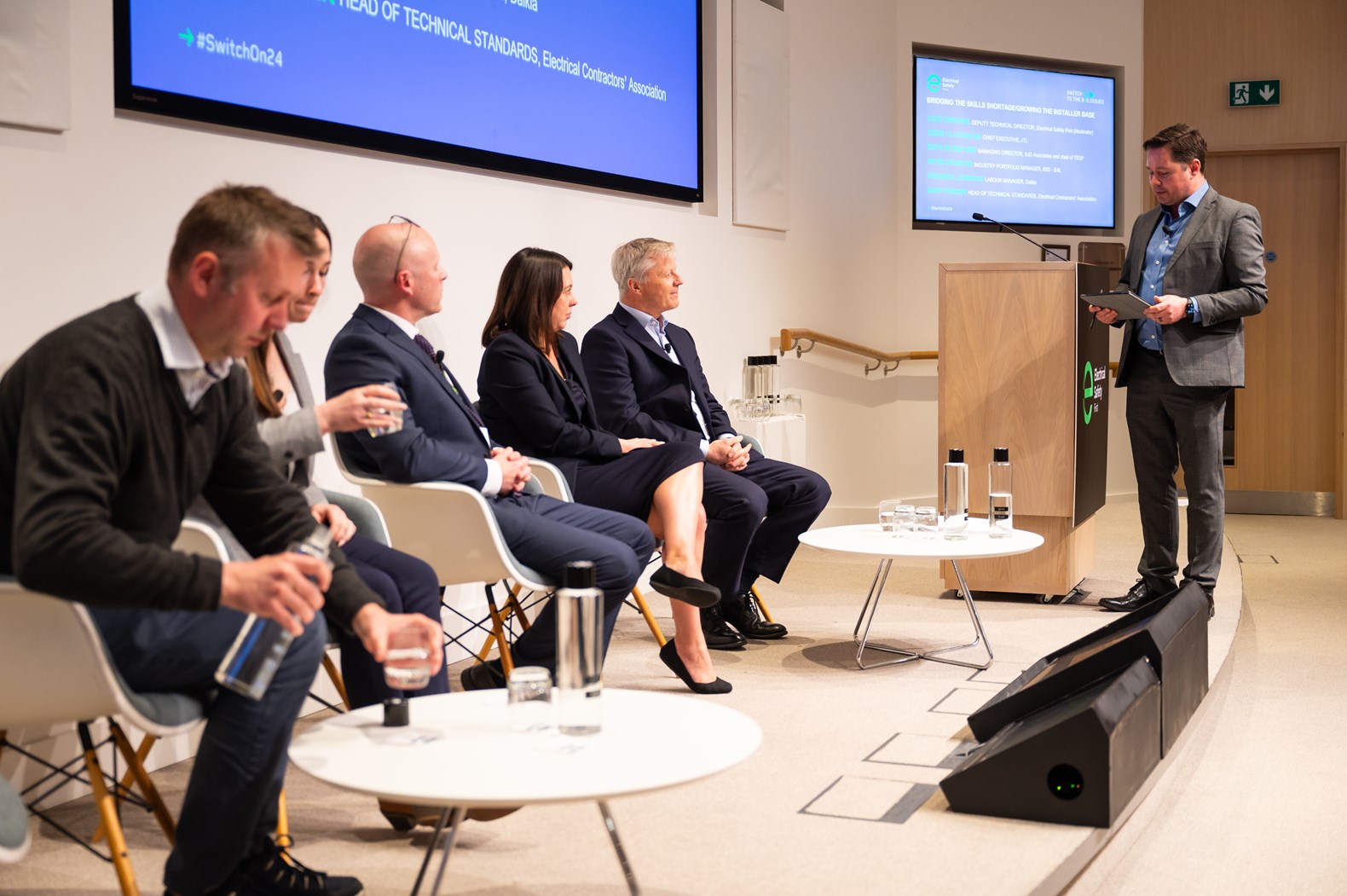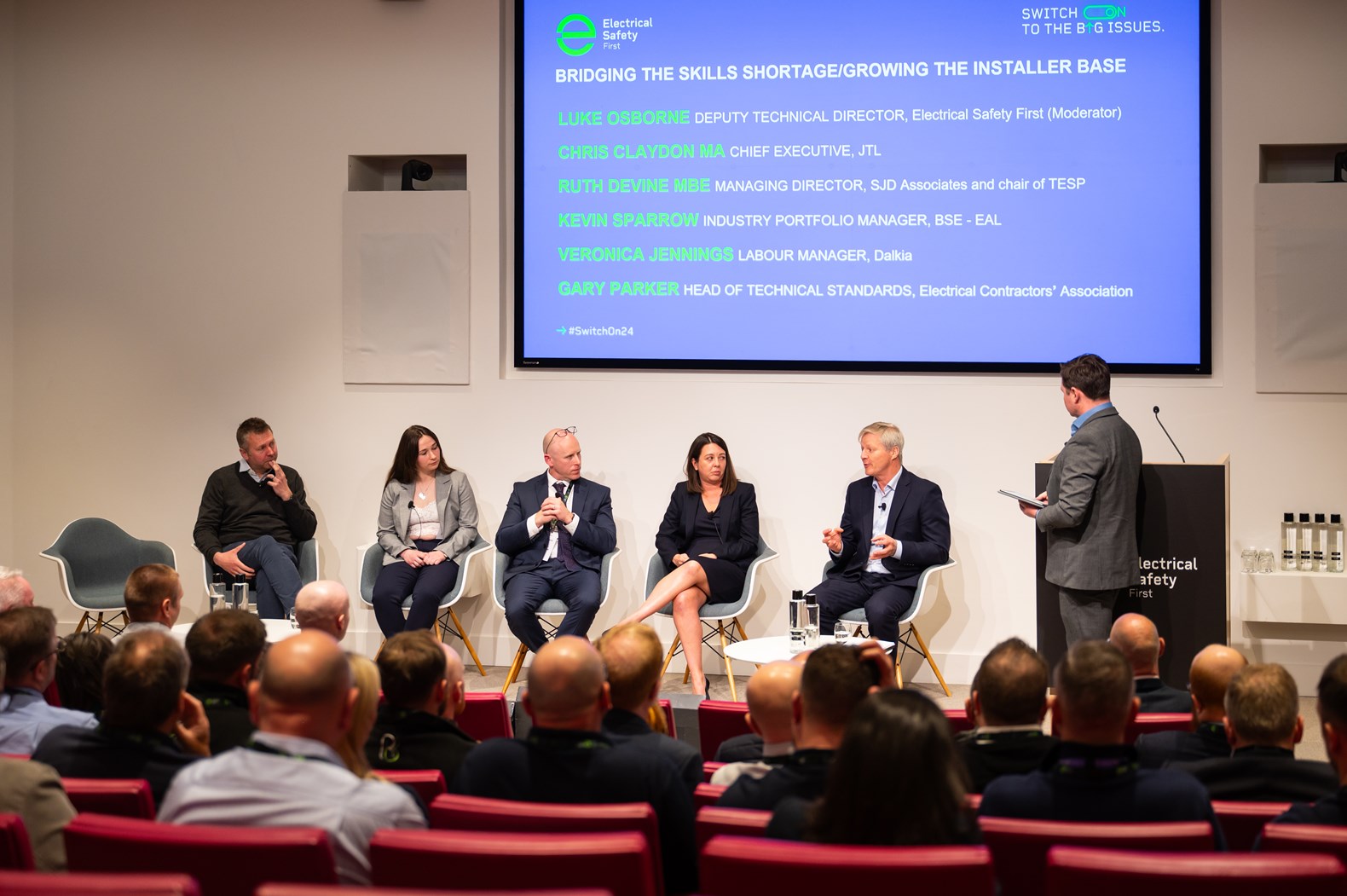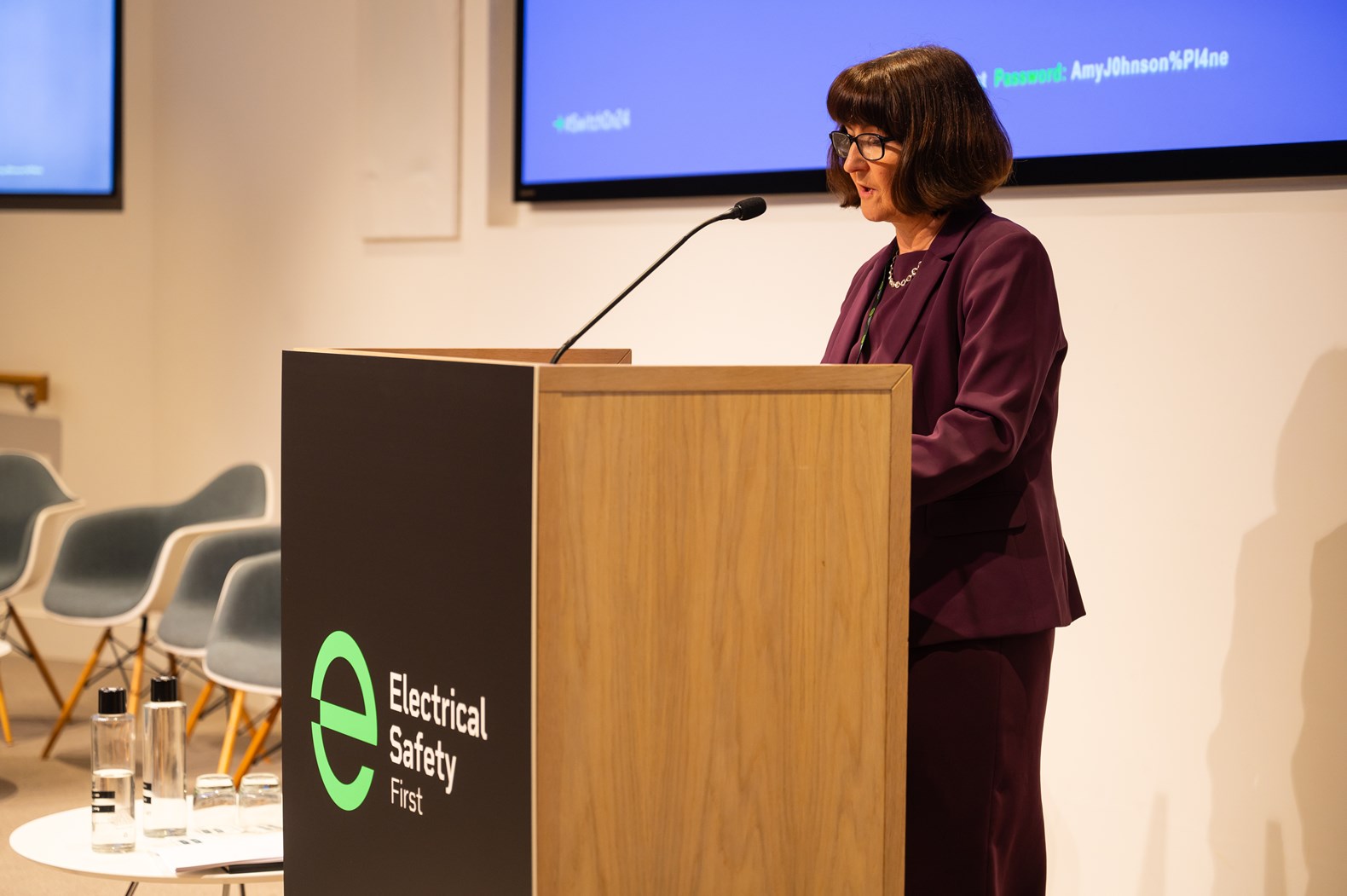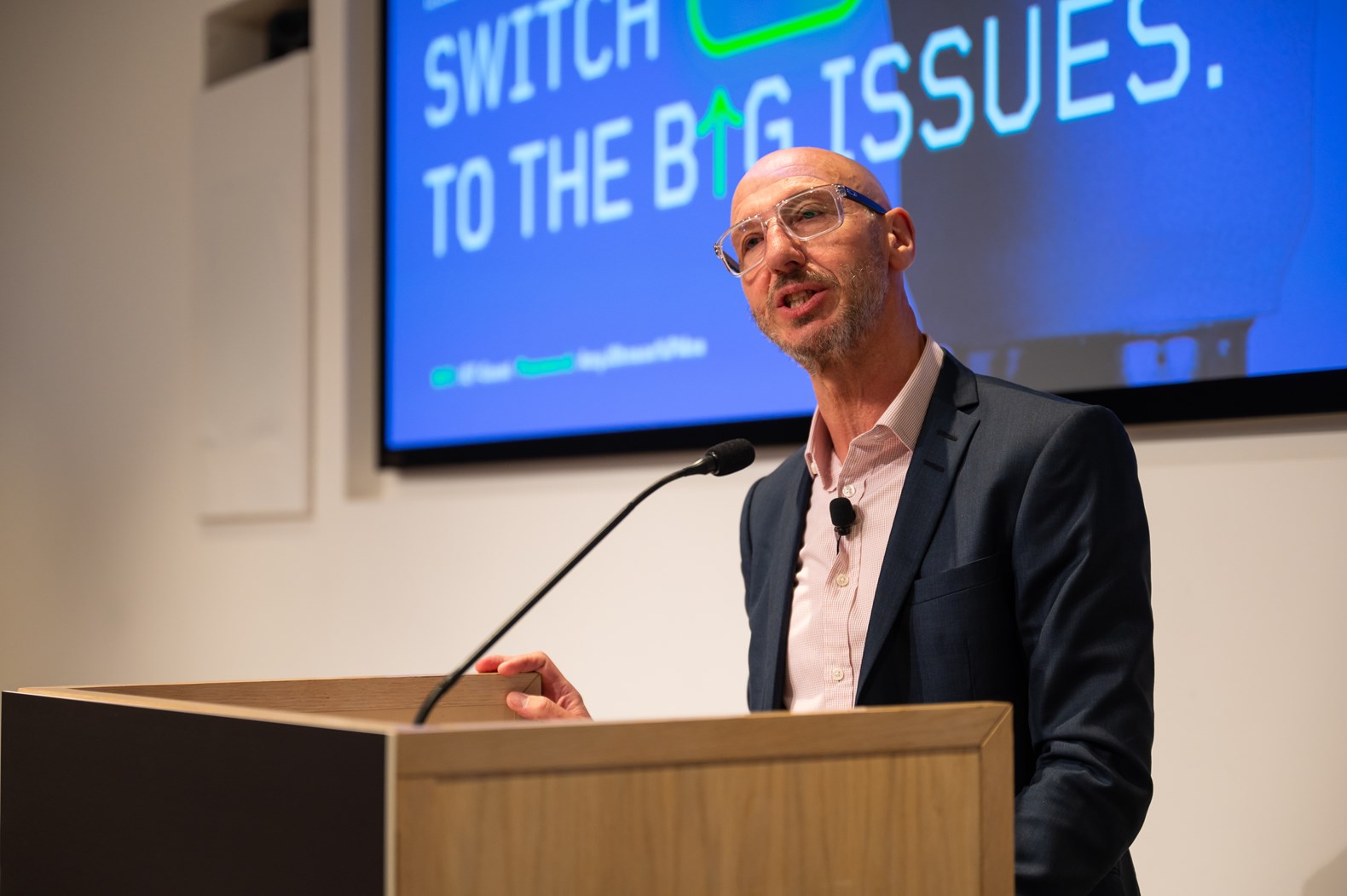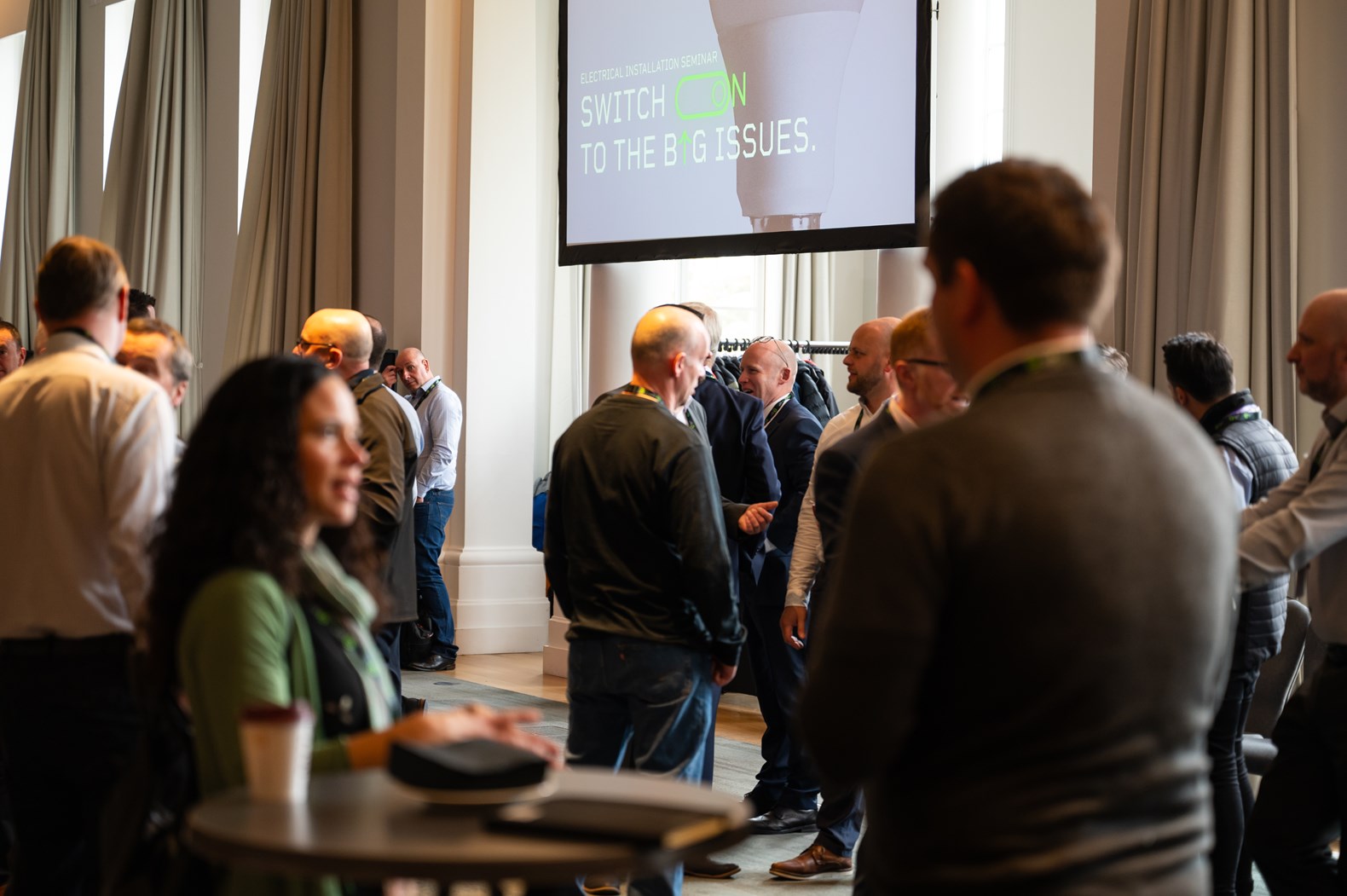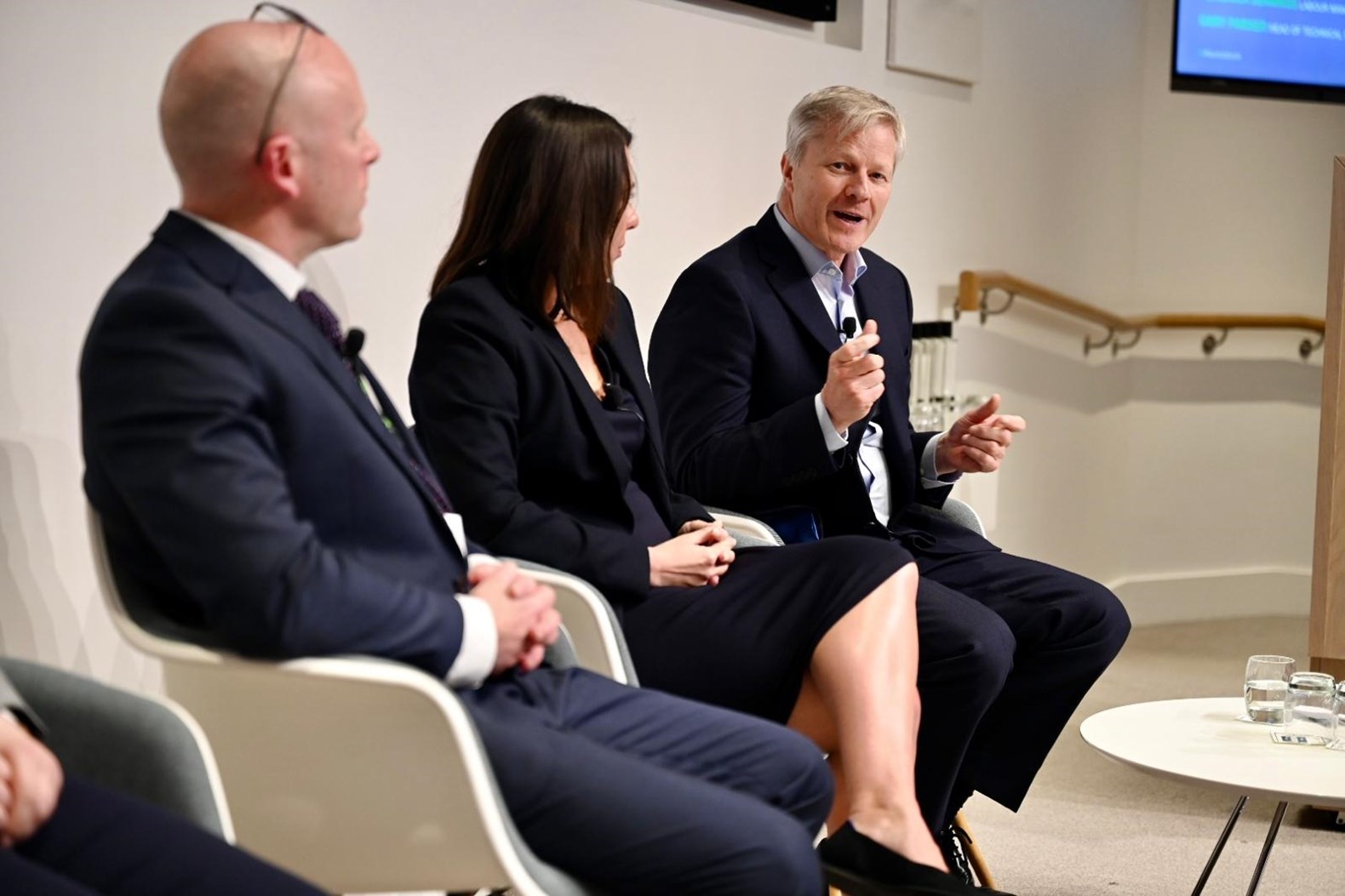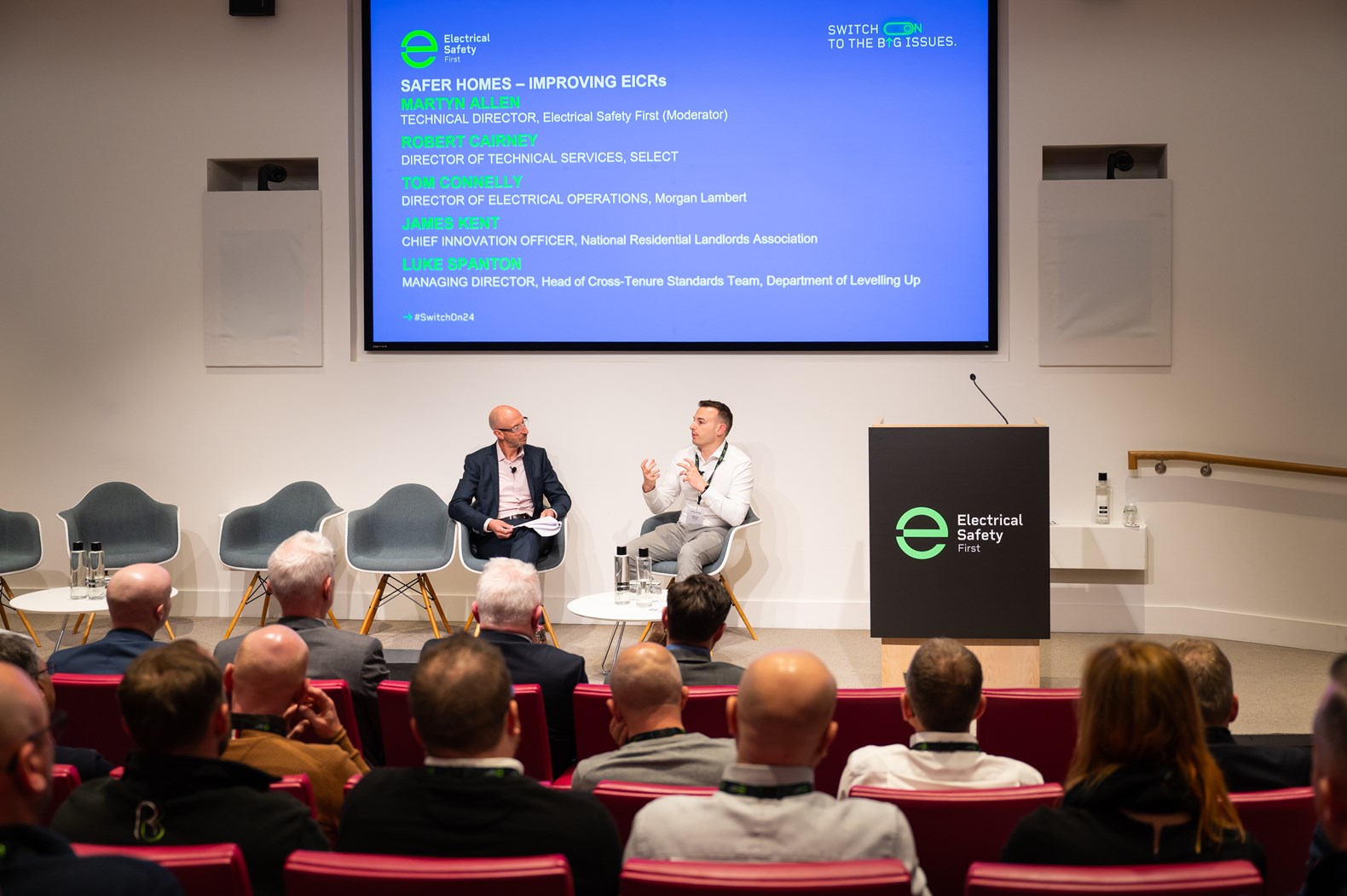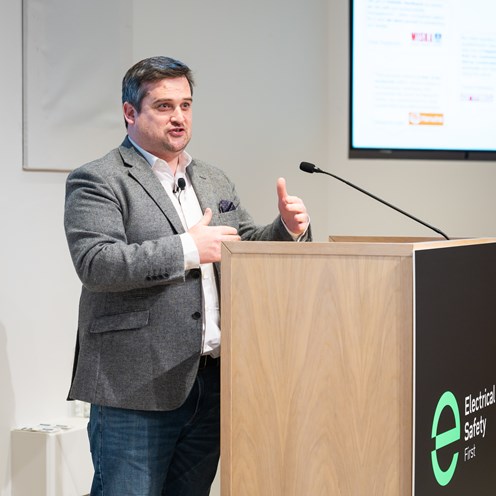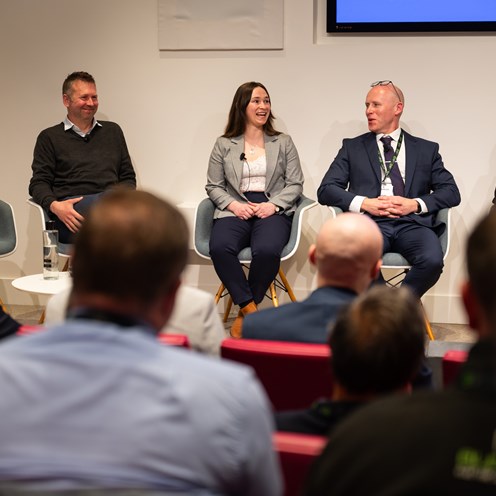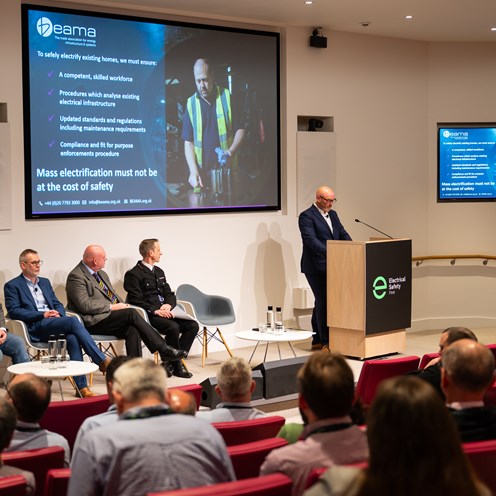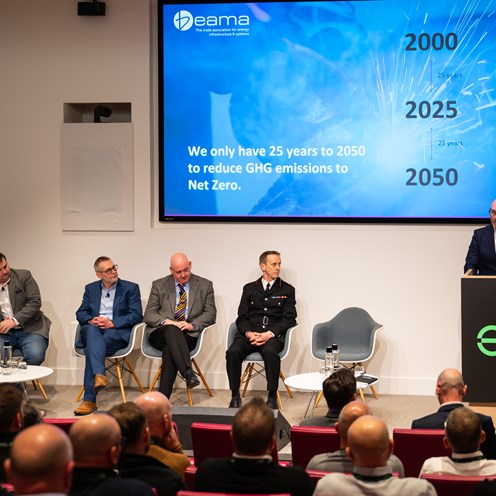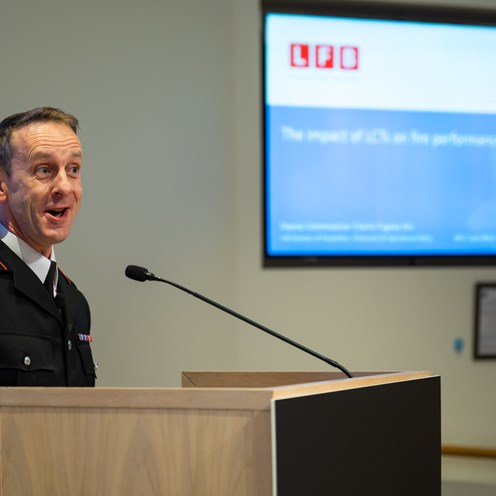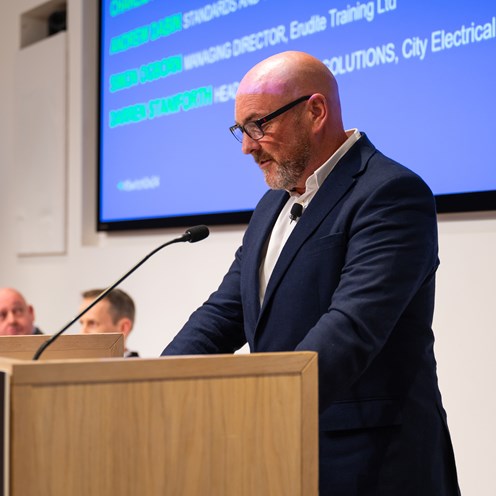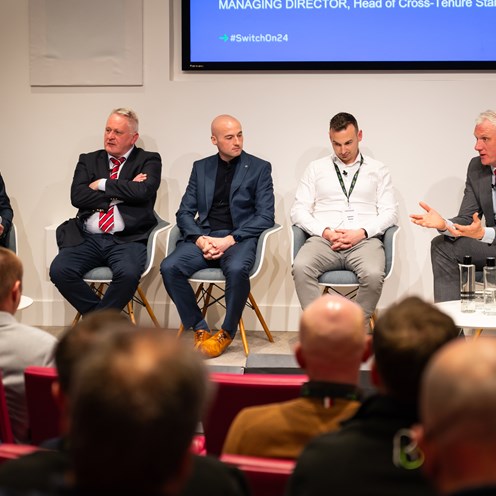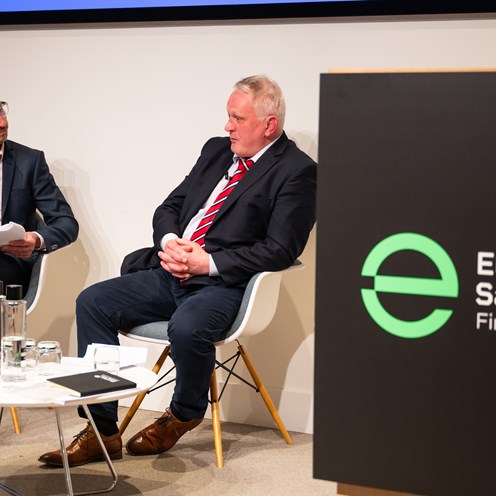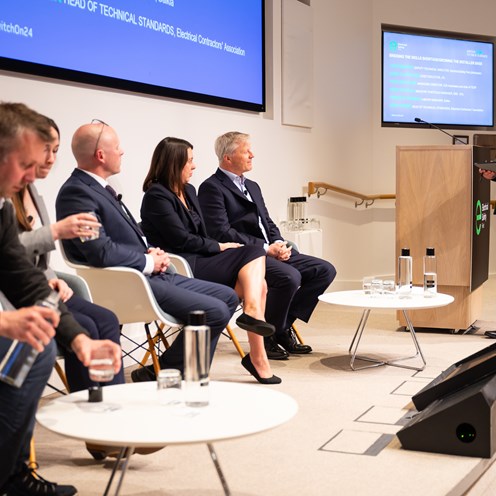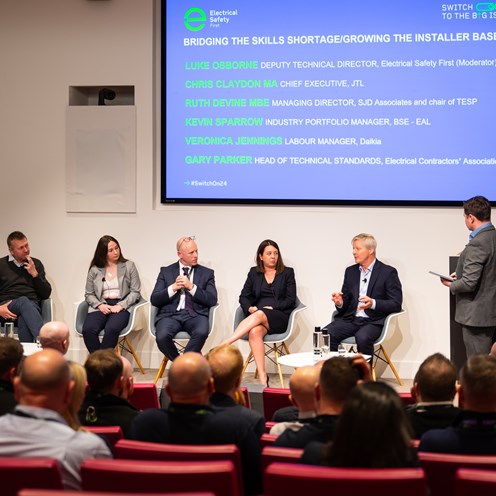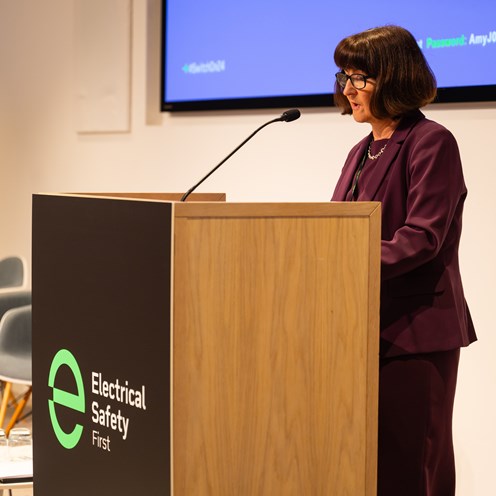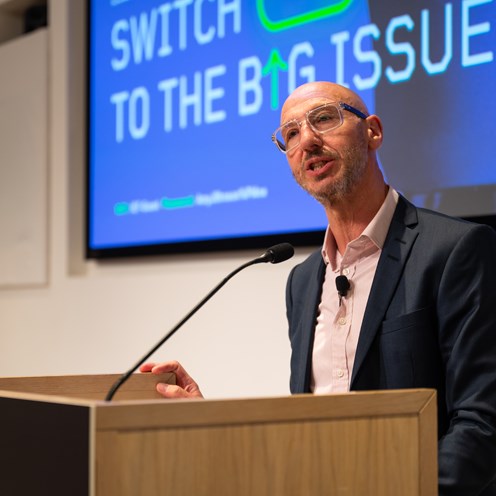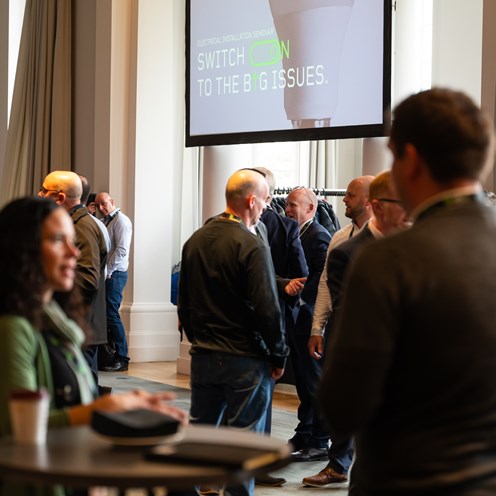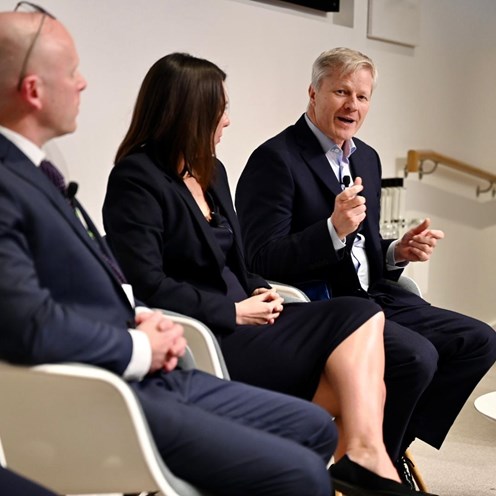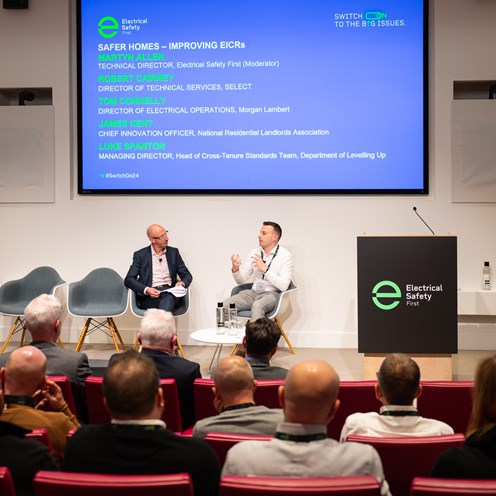Collaboration was a key theme running throughout a major new electrical industry event focused on how to move the sector forwards in both skills and standards as we get ever closer to the UK government’s 2050 net zero carbon target.
Delivering the keynote address at the half-day event, Liberal Democrat peer Lord Don Foster of Bath said it was clear that electrical professionals should work up solutions to put to the UK government for a “major contribution”.
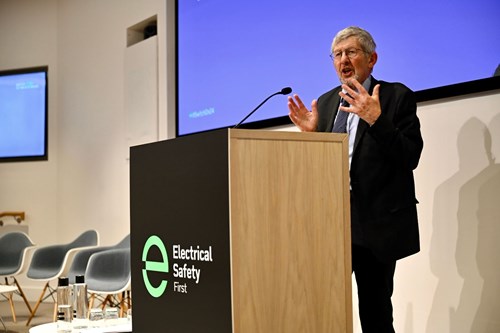
Lord Don Foster speaking at the seminar.
He said: “With the development of new ways of heating and powering homes – such as through the wider use of heat pumps and solar panels – and the impacts of other new technologies, we need to ensure both new and existing electricians and affiliated trades are trained and capable of working with them.
“There is clearly an urgent need for action in addressing the skills gap in relation to electricians. As we move towards net zero, we will be relying more and more on electricity in our homes and buildings. We must ensure our ever more complex domestic electrical systems are safe at the point of installation and remain safe over time.”
Bridging the skills shortage
The half-day event, sponsored by AICO and CEF, covered growing the installer base, and discussed the challenges in finding sufficient numbers of suitable trainers.
Additionally, how funding for the apprenticeships and providing support for apprentices and their employers was explored, particularly for the 80% of small and medium sized organisations which may lack the capacity to offer the variety of work needed within the apprenticeship.
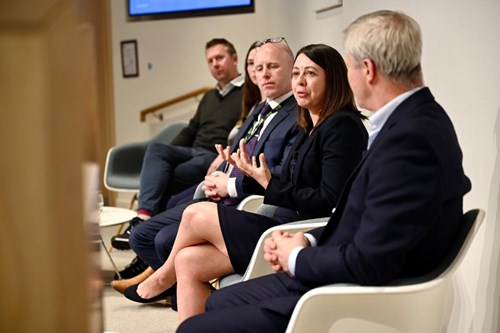 The first panel session of the day moderated by Luke Osborne, Deputy Technical Director, Electrical Safety First
The first panel session of the day moderated by Luke Osborne, Deputy Technical Director, Electrical Safety First
and consisted of Chris Claydon MA, Chief executive, JTL; Ruth Devine MBE, Managing Director, SJD Associates and Chair, TESP; Kevin Sparrow, Industry Portfolio Manager – BSE, EAL; Veronica Jennings, Labour Manager, Dalkia; Gary Parker, Head of Technical Standards, ECA.
Ruth Devine MBE, managing director of SJD Associates and chair of TESP, said: “Green tech and green values speak to young people more. We need to improve the rate of completion of apprenticeships, which is hovering at about the 50% mark. It is a perfect storm of opportunity, but we need the capacity to deliver.”
Safer homes – improving EICRs
The second session of the seminar debated the ongoing issue of improving the quality and consistency of EICRs (electrical installation condition reports). Speakers discussed inconsistencies around the coding model for reporting faults and uncertainties about how to apply it, along with the need for the model to continue to evolve to be user-friendly for the inspector but also understandable for the end user.
James Kent, chief innovation officer at the National Residential Landlords Association, said: “It’s about standardization and knowing exactly what you have to do, having the clarity about what should be tested and how long it should take. The regulations are open to interpretation and it’s as clear as mud.”
Quick fire presentations gave the audience food for thought on the potential risks of poorly designed and installed LCT (low-carbon technologies) and further emphasised the work needed to be done in ensuring a safe and just transition to net zero.
With a theme of Switch on to the big issues, the seminar was held at IET London, Savoy Place on 23 April with more than 100 delegates drawn from the electrical industry, manufacturers, wholesalers, education, government bodies, insurers, housing associations, and fire and rescue services.
Lesley Rudd, chief executive of Electrical Safety First, noted: “The increasing need for electricity means we have an increasing need for electricians, as does the move towards getting our homes and our electrical installations ready for net zero. Electrical Safety First fully supports the net zero transition, but it must be done safely.”
She closed the event by highlighting the importance of the electrical industry, saying: “This industry is crucial to our future and, working together, we can make that future a safe and successful one.”

